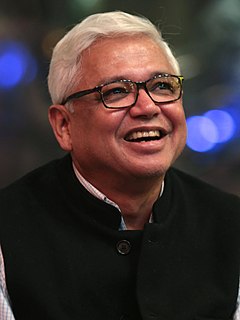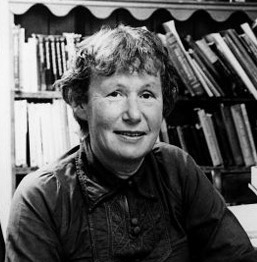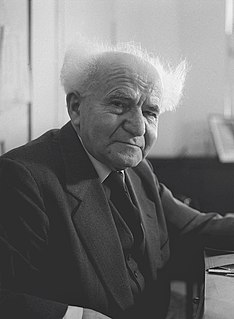A Quote by Amitav Ghosh
[T]hat state, love, is so utterly alien to that other idea without which we cannot live as human beings --- the idea of justice. It is only because love is so profoundly the enemy of justice that our minds, shrinking in horor from its true nature, try to tame it by uniting it with its opposite [...] in the hope that if we apply all the metaphors of normality, that if we heap them high enough, we shall, in the end, be able to approximate that state metaphorically.
Quote Topics
Able
Alien
Apply
Because
Beings
Cannot
End
Enemy
Enough
Hat
Heap
High
Hope
Human
Human Being
Human Beings
Idea
In The End
Justice
Live
Love
Love Is
Metaphors
Minds
Nature
Normality
Only
Opposite
Other
Our
Profoundly
Shall
Shrinking
State
Tame
Them
True
True Nature
Try
Uniting
Utterly
We Cannot
Which
Without
Related Quotes
The State, on the other hand, both in its genesis and by its primary intention, is purely anti-social. It is not based on the idea of natural rights, but on the idea that the individual has no rights except those that the State may provisionally grant him. It has always made justice costly and difficult of access, and has invariably held itself above justice and common morality whenever it could advantage itself by so doing.
Whatever we do, we must keep God in the forefront. Let us be Christian in all of our actions. But I want to tell you this evening that it is not enough for us to talk about love, love is one of the pivotal points of the Christian face, faith. There is another side called justice. And justice is really love in calculation. Justice is love correcting that which revolts against love.
The idea of the state is, or should be, a very limited, prescribed idea. The state looks after the defense of the realm, and other matters - raising revenue to pay for things which are for all of us, and so on. That idea has turned turtle now. The state isn't any longer perceived as an institution which exists to serve us.
If you love the justice of Jesus Christ more than you fear human judgment then you will seek to do compassion. Compassion means that if I see my friend and my enemy in equal need, I shall help them both equally. Justice demands that we seek and find the stranger, the broken, the prisoner and comfort them and offer them our help. Here lies the holy compassion of God that causes the devils much distress.
More than that, I believe that the grass is green because green is restful to the human eye, that the sky is blue to give us an idea of the infinite. And that blood is red so that murder will be more easily detected and criminals will be brought to justice. Yes, and I believe that I shall live forever, but I shall live without reason.
A partial Jewish State is not the end, but only the beginning. ... I am certain that we will not be prevented from settling in the other parts of the country, either by mutual agreements with our Arab neighbors or by some other means. . . [If the Arabs refuse] we shall have to speak to them in a different language. But we shall only have another language if we have a state.
If you are trying to live a life in accordance with the Bible, the concept and call to justice are inescapable. We do justice when we give all human beings their due as creations of God. Doing justice includes not only the righting of wrongs but generosity and social concern, especially toward the poor and vulnerable.
If love is the soul of Christian existence, it must be at the heart of every other Christian virtue. Thus, for example, justice without love is legalism; faith without love is ideology; hope without love is self-centeredness; forgiveness without love is self-abasement; fortitude without love is recklessness; generosity without love is extravagance; care without love is mere duty; fidelity without love is servitude. Every virtue is an expression of love. No virtue is really a virtue unless it is permeated, or informed, by love.
The true end of education is not only to make the young learned, but to make them love learning; not only to make them industrious, but to make them love industry; not only to make them virtuous, but to make them love virtue; not only to make them just, but to make them hunger and thirst after justice.
Go beyond reason to love - it is safe. It is the only safety. Love all you can, and when you are ready all will be shown to you. The state of mind that most needs enlightenment is the one that sees human beings as needing to be guided or enlightened. The sin that most needs to be loved and forgiven is the state of mind that sees human beings as sinners.



































